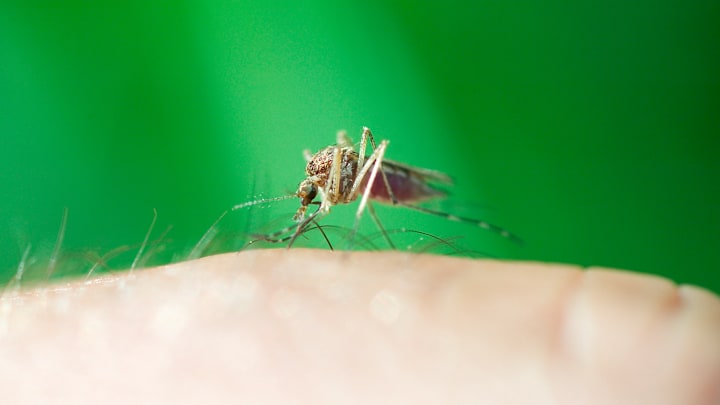Insects that go about their insect business are largely unnoticed until one of two things occurs—either they infest your home, or they bite you. The former requires some strategic intervention and possibly an exterminator; the latter is usually far less serious, though the resulting itch and irritation can stay with you for days.
Fortunately, there are some things you can do to alleviate bites that bug you. Check out a few proven remedies.
1. Use hydrocortisone cream.
Bites itch and swell as a result of the body releasing histamine in response to insect saliva or venom being injected into your skin. Hydrocortisone is a steroid cream that alleviates the inflammation, reducing the itch and swelling. It’s available over the counter as a 1 percent solution. (More powerful prescription solutions usually aren’t needed for bug bites.) You can apply it three times daily until the discomfort subsides.
2. Use ice.

Ice or a cold compress is effective for reducing the swelling that accompanies a bug bite. Leave ice on for at least 20 minutes.
3. Use Benadryl.
The antihistamine can help reduce itching and swelling when taken orally or topically. If you apply it to skin, don’t use it for more than seven days, as it can eventually cause irritation.
4. Use calamine lotion.

Calamine lotion is a blend of ferric oxide and zinc oxide, antiseptics and astringents that work to reduce the discomfort of a bug bite and creates a cooling effect on skin. You may want to use it with a moisturizer, as it can dry out skin.
5. Apply steady pressure.
For instant itch relief, try applying some pointed pressure to the bite using a fingernail or pen cap for about 10 seconds. Be sure not to break the skin.
6. Don’t keep scratching it.

This is less about reducing itch than preventing a secondary bacterial infection from irritating the bite area. Do your best to ignore the itch to keep the skin intact or use an antibiotic cream like Polysporin to prevent infection.
If the bite area get redder, painful, or increases in size, see a doctor. The same applies if you get bitten or stung and experience shortness of breath or widespread swelling. That might indicate a more severe allergic reaction, and you’ll need prompt medical attention.
A version of this story originally ran in 2021; it has been updated for 2023.
